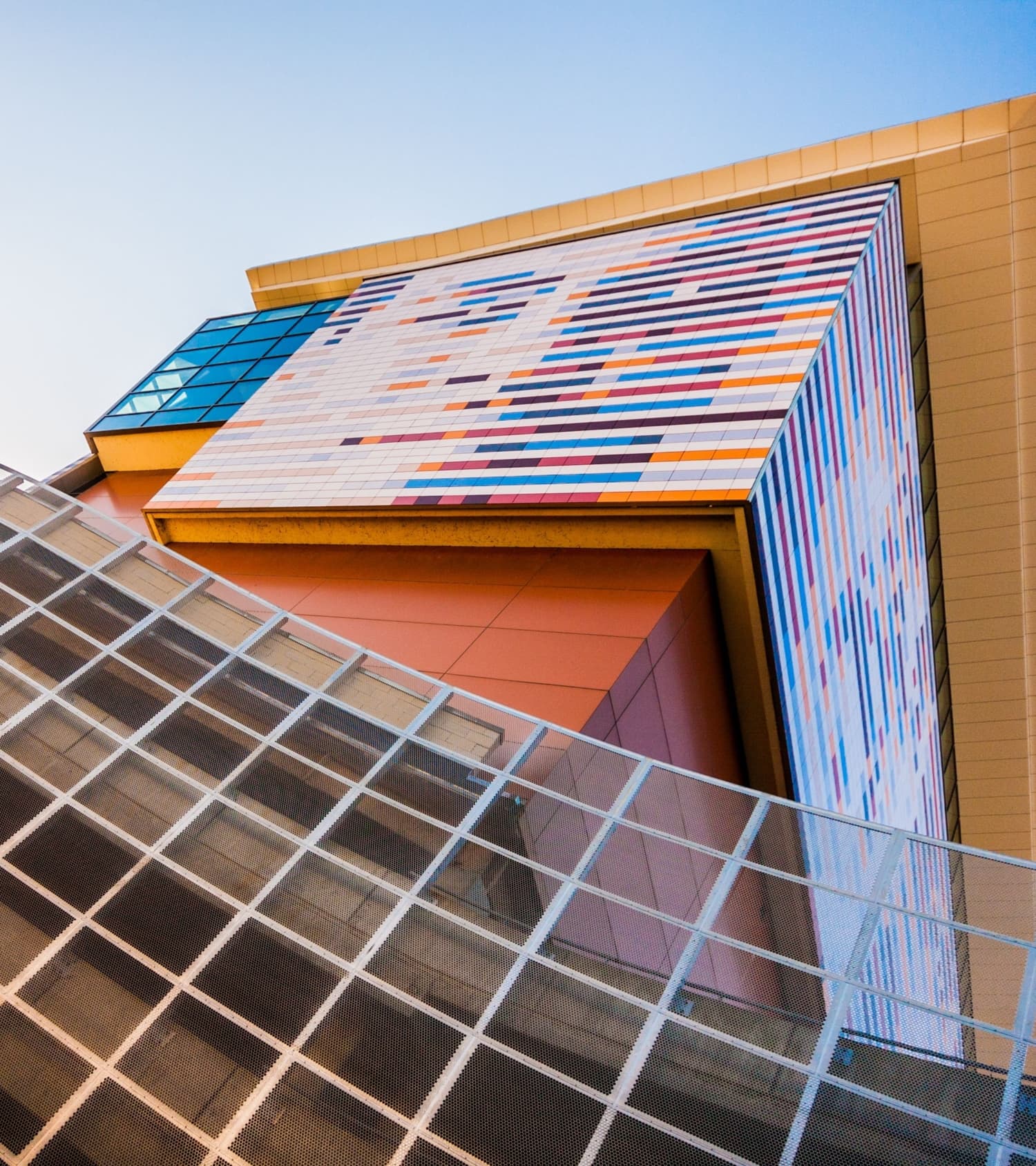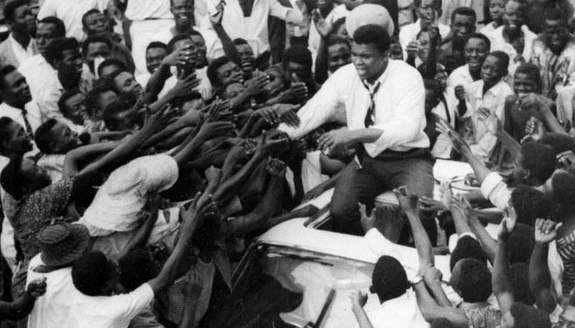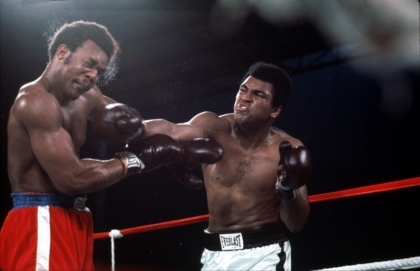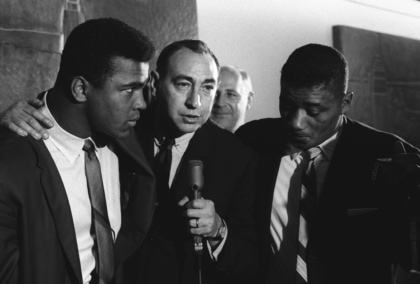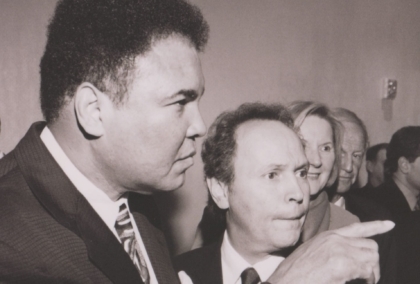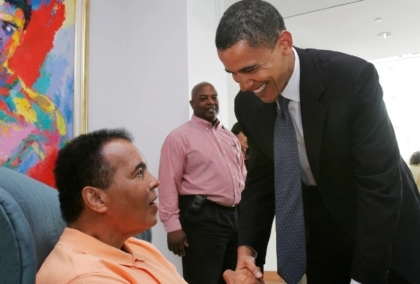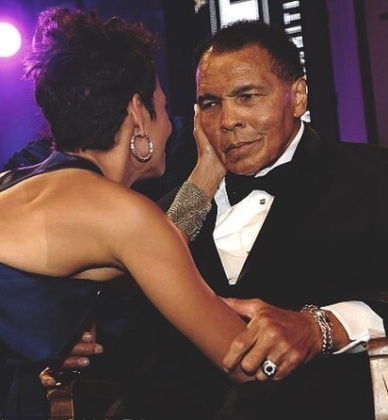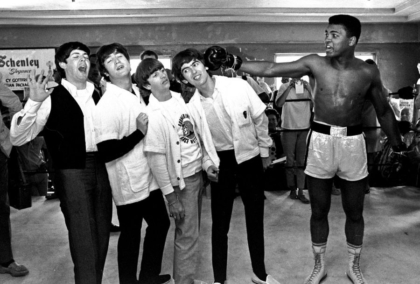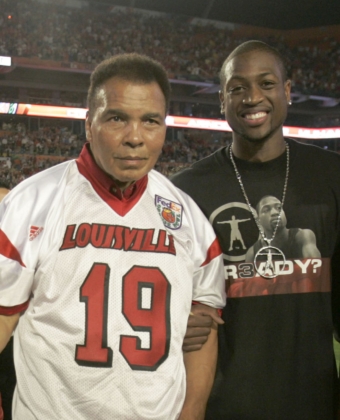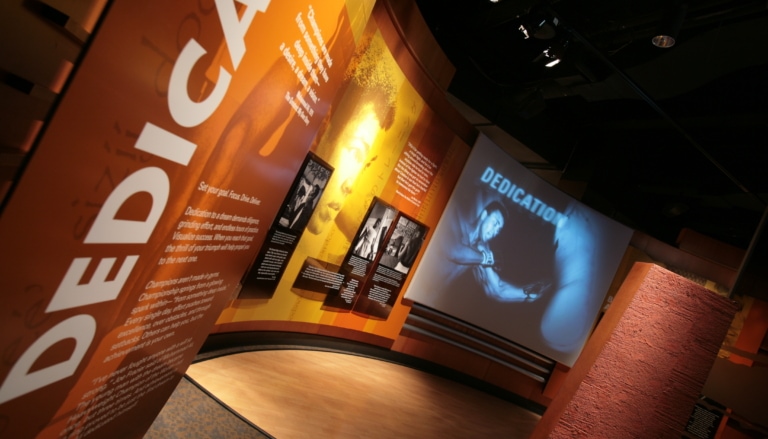Meet Ali
Explore the life of Muhammad Ali: the People’s Champion.
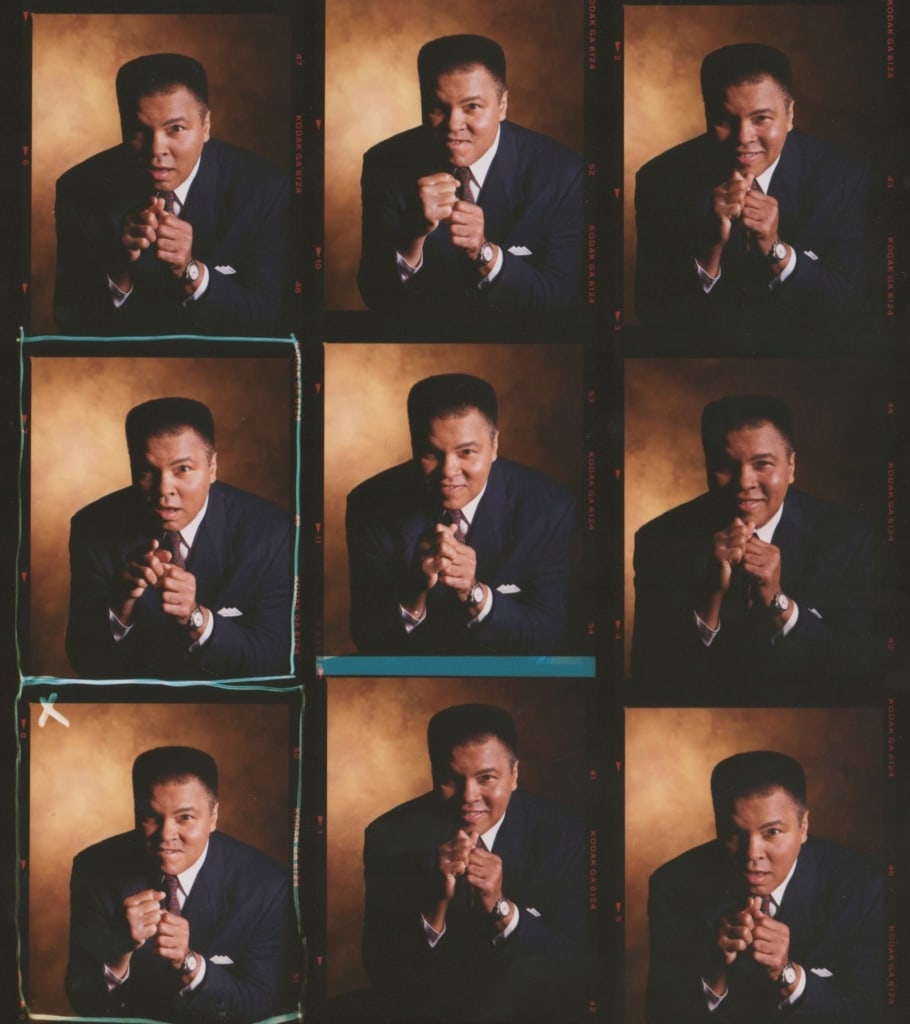
Muhammad Ali
He championed the world.
If courage had a face, it would be the visage of a man in full, magnificently complicated yet fully evolved, both mythic but real to the touch. Courage would look like a world heavyweight champion, a conscientious objector, an activist, a diplomat, and a humanitarian. Courage would be Muhammad Ali.
In the ring, Ali possessed unparalleled power, speed, and charisma. In the world at large, his consciousness and empathy about the state of the world, equality, justice, and the fate of the marginalized reverberated louder than his athletic prowess. Quite possibly the most famous person in his time, Ali drew crowds everywhere he went — and he went everywhere. Equally at ease with heads of state and people on the street, Ali stood in the power of his faith and values. He withstood forces that threatened to cut him down to size and steal prime years of his career, only to rise again stronger and more urgent than ever.
Born Cassius Marcellus Clay, Jr. on January 17, 1942, he grew up in Louisville, Kentucky, while racial segregation was the law in the American South. In a pivotal moment of his youth, a young Ali channeled outrage over the theft of his red bicycle into amateur boxing. Within a few short years, he’d won a gold medal at the 1960 Rome Summer Olympics and shook the world when he upset the world heavyweight champion. Unabashed confidence and poetic self-expression were backed up by a talent that saw him undefeated through his first 31 professional fights.
His ascendancy grew alongside the fight for civil rights in America, where he became a cultural force. A generation watched a young Black man declare his own beauty and greatness and inspired others to do the same. He announced his conversion to Islam and was given a name reflecting his faith — Muhammad Ali. His conscientious objection to the Vietnam War was a polarizing moment in American society. Stripped of the championship and banned from boxing and his ability to earn a living for three years, Ali fought for reinstatement and would reclaim the heavyweight title two more times.
His accomplishments in the ring were the stuff of legend. But there was always far more to Muhammad than what took place in a boxing ring.
To continue his legacy, Lonnie and Muhammad Ali founded the Muhammad Ali Center in their hometown of Louisville in 2005 as a place of inspiration and reflection. In later years, Muhammad lived with Parkinson’s disease and raised awareness of the need for research and a cure. Muhammad shook the world one last time when he passed away on June 3, 2016. His memorial drew hundreds of thousands of mourners from around the world — and Louisville was ready to receive these pilgrims with reverence and pride.
Muhammad’s spirit lives on through the work of the Muhammad Ali Center and those who fight for justice for all.
"If people from outer space came to Earth and we had to give them one representative of our species to show them our physical prowess, our spirituality, our decency, our warmth, our kindness, our humor, and most of all our capacity to love, it would be Ali."
